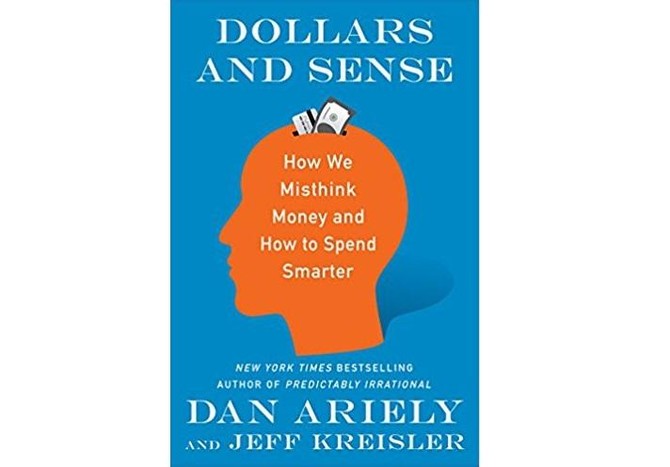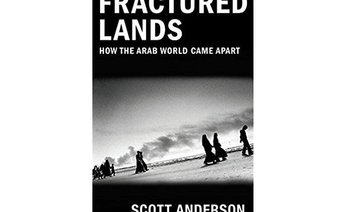As Swedish pop group Abba once informed us: “Money, money, money, must be funny, in the rich man’s world. Money, money, money, always sunny, in the rich man’s world.”
The entertaining book “Dollars And Sense: How We Misthink Money and How to Spend Smarter” does not tell us all the things we could do if we had a little money. Instead, authors Dan Ariely, a professor of psychology and behavioral economics at Duke University in Durham, North Carolina, and Jeff Kreisler, a Princeton-educated lawyer-turned-comedian, shed light on common mistakes we make where money is concerned and why we make them.
This book delves into the complex forces at work behind the money matters that consume our time and control our lives, and reveals how they can improve our financial affairs.
“Why? Because our decisions about money are about more than just money,” the authors write. “The same forces that shape our reality in the domain of money also influence how we value the important things in the rest of our lives: how we spend our time, manage our career, embrace other people, develop relationships, make ourselves happy, and ultimately, how we understand the world around us.”
We all think we know what money is but perhaps do not fully understand the role it plays in our lives. Money has no value in itself but represents the value of the things we can obtain with it. The process seems simple: you decide what you want to buy, you pay for it and it is yours. However, most buyers do not take into consideration the opportunity costs: the alternative benefits that could have been enjoyed but were given up when making a decision.
Ariely recalls visiting to a car dealership and asking potential buyers what they would giving up if they bought a new vehicle. Few of them had an answer because most people are solely focused on what they want to buy.
“We almost always fail to fully appreciate alternatives. And, unfortunately, when we fail to consider these opportunity costs, the odds are that our decisions are not going to be in our best interests,” according to the authors.
Financial tools and services such as credits cards, mortgages, car-leasing agreements and students loans often cloud our understanding of the future effects of spending money.
We often forget that all things are relative. A striking example of this is the case of US department store JCPenney. In 2012, new CEO Ron Johnson ended the chain’s practice of deliberately inflating the initial price of its products, then marking them down so they appeared to be bargains – even though the reduced prices were actually the same as those offered by other retailers.
The new policy of setting this realistic, lower price to start with was fair and transparent – yet customers hated it. They felt cheated and betrayed and sales slumped. In one year, JCPenney lost $985million – and the CEO lost his job.
“Think about that: JCPenney’s customers voted with their wallets and they elected to be manipulated,” the authors write. “They wanted deals, bargains and sales even if it meant bringing back inflated regular prices, which is exactly what JCPenney eventually did.”
As another example of real versus relative value, we often do not mind paying more for a bottle of water on the beach while on holiday, mostly because psychologically we feel the extra cost is nothing compared with the overall cost of the vacation.
How does all this relate to our desire to avoid the pain of paying? This, the authors explain, is the pain we feel not when we spend money, but when we think about spending it. The more we think about it, the more painful it feels. If we consume a product while thinking this way, the pain of paying can deeply affect the entire experience, making it less enjoyable.
There are ways to avoid the pain of paying. One is to pay in advance. Then there is no worrying about our enjoyment being spoiled by paying at the time of consumption. However, advance payment is less economical since the money is gone and no longer accumulating interest.
Paying after consumption hurts less, which is one of the main reasons why credit cards are so popular. They take advantage of our desire to avoid the pain of paying – we are less likely to remember the amount we spend if we pay with a credit card instead of cash.
“Credit cards are like memory erasers from a science fiction movie, but they live in our wallets” write the authors, who point out that studies have found people are more willing to pay when they use credit cards and tend to make bigger purchases.
“In other words, credit cards and even just the suggestion of credit cards, influence us to spend more, more quickly, more carelessly, and more forgetfully than we would otherwise,” they write. “In some ways, they are like a drug that blurs our ability to process information and act rationally…Their effect is deep and worrisome.”
Another common mistake many of us make is that we overvalue the things we own. The true value is a function of the utility and opportunity costs. Throughout their book, Ariely and Kreisler show how we all make many financial decisions but often do not take the time to think them through. When we do not know the true value of something, we are particularly susceptible to suggestion and misleading information, and so make the wrong decisions.
The responsibility, therefore, lies with each of us to become aware of our ignorance and limitations, and to improve our money habits so that we save and spend smarter, allowing us to live better lives.
Book Review: Cash in on a smarter way to think about money
Book Review: Cash in on a smarter way to think about money

What We Are Reading Today: ‘Africa’s Buildings’ by Itohan I. Osayimwse

Between the 19th century and today, colonial officials, collectors, and anthropologists dismembered African buildings and dispersed their parts to museums in Europe and the United States.
Most of these artifacts were cataloged as ornamental art objects, which erased their intended functions, and the removal of these objects often had catastrophic consequences for the original structures.
“Africa’s Buildings” traces the history of the collection and distribution of African architectural fragments, documenting the brutality of the colonial regimes that looted Africa’s buildings.
What We Are Reading Today: ‘Birds at Rest’ by Roger Pasquier

“Birds at Rest” is the first book to give a full picture of how birds rest, roost, and sleep, a vital part of their lives.
It features new science that can measure what is happening in a bird’s brain over the course of a night or when it has flown to another hemisphere, as well as still-valuable observations by legendary naturalists such as John James Audubon, Alfred Russel Wallace, and Theodore Roosevelt. Much of what they saw and what ornithologists are studying today can be observed and enjoyed by any birder.
What We Are Reading Today: ‘On the Art and Craft of Doing Science’

Author: Kenneth Catania
Like any creative endeavor, science can be a messy and chaotic affair.
“On the Art and Craft of Doing Science” shares the creative process of an innovative and accomplished scientist, taking readers behind the scenes of some of his most pioneering investigations and explaining why the practice of science, far from being an orderly exercise in pure logic, is a form of creative expression like any other art.
Kenneth Catania begins by discussing how ideas set the stage for scientific breakthroughs and goes on to describe ways to approach experimental design.
What We Are Reading Today: ‘Fuji: A Mountain in the Making’

- It has been both a totem of national unity and a flashpoint for economic and political disputes
Author: ANDREW W. BERNSTEIN
Mount Fuji is everywhere recognized as a wonder of nature and enduring symbol of Japan.
Yet behind the picture-postcard image is a history filled with conflict and upheaval. Violent eruptions across the centuries wrought havoc and instilled fear.
It has been both a totem of national unity and a flashpoint for economic and political disputes.
And while its soaring majesty has inspired countless works of literature and art, the foot of the mountain is home to military training grounds and polluting industries.
What We Are Reading Today: ‘The Aquarium’

- Hemon’s writing grapples with displacement and identity, weaving together fiction, memoir, and history
Aleksandar Hemon’s 2011 essay “The Aquarium” is an exploration of parental love, grief, and the isolating toll of confronting a child’s mortality. The essay was first published in The New Yorker and later appeared in “The Book of My Lives” in 2013.
Written with unflinching honesty, the piece chronicles Hemon’s experience navigating his infant daughter Isabel’s diagnosis of a rare brain tumor and the family’s agonizing journey through surgeries, chemotherapy, and loss.
Hemon juxtaposes the clinical detachment of medical jargon — “external ventricular drain,” “stem-cell recovery” — with visceral snapshots: Isabel’s breath on his chest, her laughter amid IV drips, her small hand gripping his finger.
At the heart of the essay lies the metaphor of an aquarium where the family exists in a suffocating bubble, visible to the outside world but severed from its rhythms.
Central to the narrative is Hemon’s elder daughter Ella, who processes her sister’s illness through an imaginary brother, Mingus.
Stylistically, Hemon oscillates between reporter-like precision and raw vulnerability. He rejects platitudes about suffering’s “ennobling” nature, writing: “Isabel’s suffering and death did nothing for her, or us, or the world.”
The essay’s power lies in its refusal to soften despair, instead confronting the “indelible absence” grief leaves behind.
Hemon’s writing grapples with displacement and identity, weaving together fiction, memoir, and history. A MacArthur Genius Grant recipient, he doesn’t just tell stories; he uses language to find pockets of hope in shattered lives.
Think of him as a guide through the chaos of modern exile — equal parts poet and provocateur.


















